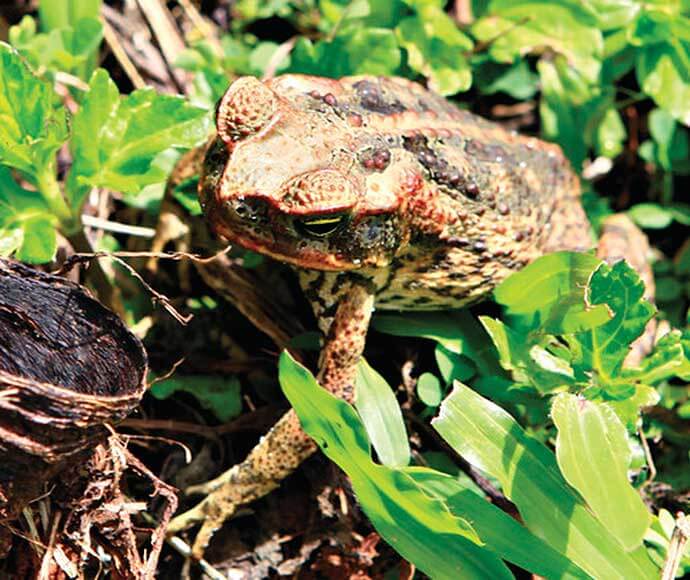Since colonisation, many species of animal have been introduced into Australia from other countries. They include:
Introduced predators, such as foxes and feral cats, have caused the extinction of many native species. Many other native animals face the threat of extinction if the impacts of introduced predators are not controlled.

Cane toad (Rhinella marinus), previously Bufo marinus, invasive pest
How pest animals threaten native species
Pest animals threaten native animals because they:
- hunt and prey on native species
- compete for food and habitat resources.
Pest animals also threaten native plant species and degrade the environment.
Introduced herbivores, such as deer, goats and pigs, can cause extensive damage to native vegetation and soils through grazing, trampling and digging. They may also compete with native herbivores for food and further impact the environment by providing an abundant food source for other pests. For example, rabbits can support high densities of feral cats and foxes, which in turn prey on native animals.
Some species of pest animals have been listed as key threatening processes under the Biodiversity Conservation Act 2016.
As well as damaging the natural environment, pest animals can harm sites of cultural significance such as Aboriginal rock art sites or historically significant structures.
Pest animals pose a major threat to agriculture by killing, harassing or competing with livestock, spreading disease and contributing to soil erosion. They can affect aquatic as well as terrestrial ecosystems.
Managing pest animals
Current pest management priorities for NPWS are detailed in the regional pest management strategies.
The NSW Saving our Species (SOS) program provides priorities for the protection of threatened species from pests, weeds and other threats across New South Wales.
Report pests
Widespread pest animals should be reported to your Local Land Services.
Sightings of unusual animals should be reported to Department of Primary Industries and Regional Development via the website or by phoning 1800 680 244.